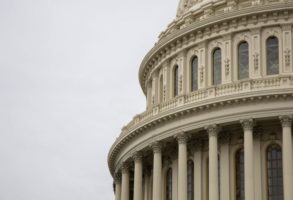Published March 10, 2015
At his blog, Ross Douthat ably lays out the enormous appeal of the Lee-Rubio tax proposal released last week, and well articulates some of the fiscal concerns and unknowns that other friends of the plan (including yours truly) have also pointed to in various venues. Well worth your while.
There’s one point I’d add, on the question of scoring and fiscal effects. The proposal combines a very aggressive pro-growth reform of the business side of the code with significant and broad-based tax relief on the individual side—exactly the right mix of goals. The degree to which it does each will presumably be adjusted over time in response to how it’s scored, but the basic ingredients are there. We now have one modeled score of the proposal to look at, from the Tax Foundation, and it’s likely we’ll have another from the Tax Policy Center sooner or later, and we can hope that these provide enough detail to guide that further development (since the fiscal effects suggested by this first score mean such development is surely called for). But the senators and their staffs, like the rest of us, have to rely on such after-the-fact modeling to improve such proposals for a reason that helps highlight a point I’ve argued before around here—about the need for modernizing Congress’s scorekeepers.
This proposal (like so much of the extraordinary work that Lee and Rubio and a few others have been doing individually over the last few years, in areas ranging from welfare reform to higher education, transportation, sentencing reform, and more) is what the next generation of congressional policy entrepreneurship will look like, and really in some respects what the next generation of congressional policymaking in general will look like—since the traditional leadership and committee system, driven by centralized authority and oiled by earmarks, is unlikely to return. This kind of bottom-up, networked policy development will be essential to any revival of the Congress. But their experience with these various proposals demonstrates that the congressional scorekeepers are not well positioned to meet the needs of that next generation of policymakers.
Rubio and Lee have basically no chance of getting their tax reform scored by the Joint Committee on Taxation (the counterpart to the Congressional Budget Office, charged with scoring tax proposals) in the course of developing it because neither of them is on the Finance Committee (and even Finance Committee members other than the chairman and ranking member generally can’t get things scored in advance in a timely way). At the same time, they are also prohibited by Senate ethics rules (or rather by a longstanding Ethics Committee interpretation of rule 38) from working with outside scorers. That means they can’t go back and forth with any modeler to see how things score and make adjustments before releasing their proposal. So they essentially have to produce it, see what outside scorers say in public, and then adjust it and try again. This obviously makes it very difficult to fine-tune a proposal without a great deal of time and effort being wasted, and without taking the risks involved in an unanticipated public score.
Lee and Rubio would have had a decent general idea of the fiscal effects of their proposal, of course, but they could not have had the advantage of seeing exactly how various components score in relation to one another and what changes could be made in advance to what effect.
This can and should change. The JCT, even more than CBO, is notorious for a black-box process of scoring legislation, often offering little or no guidance about its methods and assumptions and acting as a major bottleneck in the legislative process. Both agencies should be directed by Congress to begin a gradual transformation of their roles from black-box modelers to developers and stewards of a set of open public models, available online to anyone with sufficient technical prowess to use them.
The two of them, with outside help, would create and maintain these models, and would determine a set of official economic assumptions and policy expectations to be used in modeling for formal budget-process purposes. Anyone could “score” policy proposals using those official assumptions and could also use the models with other assumptions to project a proposal’s consequences under alternative circumstances.
The scorekeepers would no doubt face some major technical hurdles on the path to such a transformation (I discussed a few of those here), but they are not insurmountable, and could be informed by the progress some private-sector modelers have been making in this direction.
The last time I raised this idea, here at NRO, then-director of the CBO Douglas Elmendorf kindly got in touch with me to discuss it. (It was especially classy of him since the post in which I mentioned the idea also urged Republicans not to renew him at the agency.) He said CBO was moving in the direction of such greater transparency and access but raised several of the objections I’d mentioned in that post, and one more: that the transition would be effectively impossible because CBO would have to continue performing its current role even as it gradually took on that new one. This, like all of his other concerns, was an intelligent and important point, but not an insurmountable obstacle, and ultimately not an answer to the concern that CBO and JCT (perhaps through no fault of their own, they do what Congress tells them) have failed to keep up with the times and so are not offering Congress and the country the kind of service that modern technology should now enable them to provide.
As it becomes clearer that the future of congressional policymaking will not be a good fit for today’s scorekeepers, the case for such changes grows. Whether it’s enabling the quicker development and adjustment of important initiatives like the Lee-Rubio tax proposal or simply enabling a more informed debate about the options that might be available to policymakers in various arenas, it’s time to begin a change in this direction.
— Yuval Levin is the Hertog Fellow at the Ethics and Public Policy Center.








